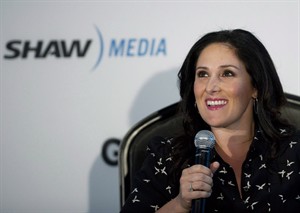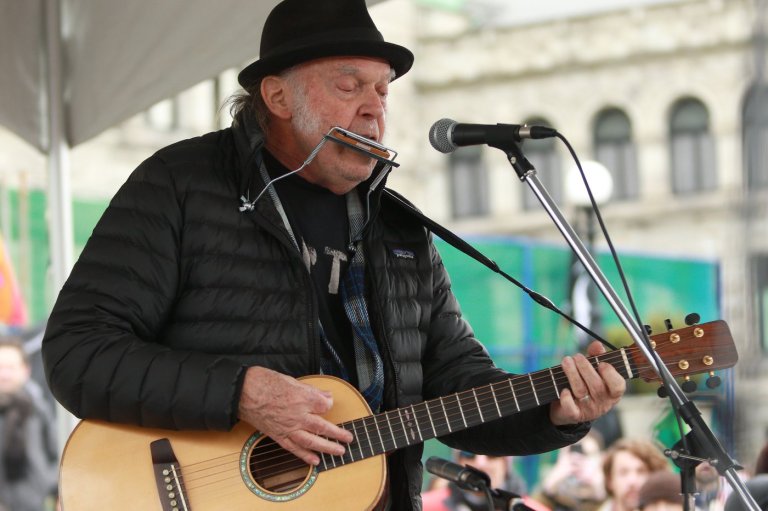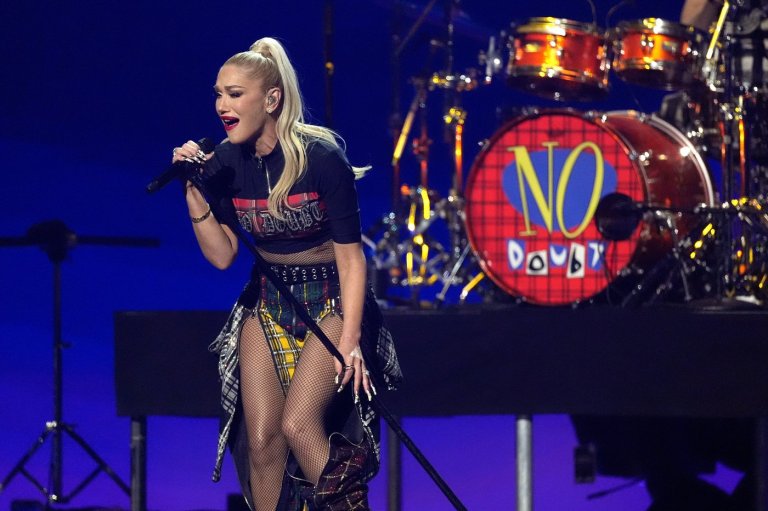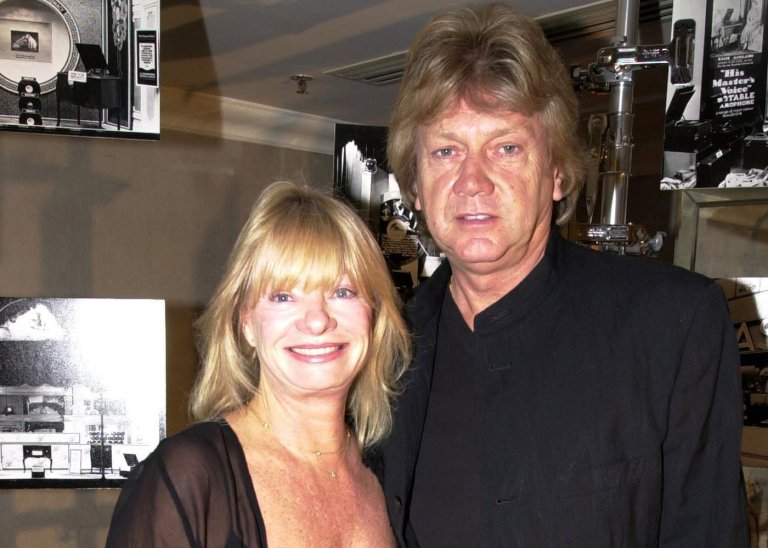
Couric, Probst, Lake among new chat show hosts hoping to fill the Oprah void
TORONTO – The departure of Oprah Winfrey left a gaping gap in daytime TV, but a slew of new afternoon talkers are vying to fill the void.
The army of professional chatterboxes ready to gab their way into our living rooms includes former “Survivor” host Jeff Probst, comedian Steve Harvey and actress-turned-“Dancing With the Stars” contender Ricki Lake.
Chief among them is former “Today” co-host and “CBS Evening News” anchor Katie Couric, who launches her show “Katie” this September on Citytv.
“There will be a sort of Darwinian process that will play out in the next few years,” Couric predicts of the talk show wave set to hit this fall, nevertheless downplaying any suggestion she could replace the venerable Winfrey.
“Obviously, everyone has talked about the fact that there is a hole in the marketplace since Oprah’s departure and I think we should just be honest about that, that’s very true. The notion of competing with her would be pretty daunting for me…. I just thought the time seemed right — I’m a person who really gets excited about change and new challenges so this seemed to be an appropriate next step for me, professionally.”
Coincidentally, Lake says it was the right time for her to return to daytime, too, although she dismisses suggestions Winfrey’s departure had anything to do with it.
“No one can replace Oprah — she was on a level that no one else (was),” Lake said during a recent visit to Toronto to promote her daytime slot on Global.
“It would be totally presumptuous for us to think we could take her place.”
Lake, who returns to the talk format after cutting her teeth on the late-’90s gabfest “Ricki Lake,” says her show will be “for moms like me,” targeting women aged 25 to 54.
And like her intended audience of average working women, Lake notes that she’s far from having figured out all the answers.
“I’m not going to be telling everybody how to live their best life,” she says, referring to Winfrey’s oft-intoned mantra.
“I am not the person who knows what anybody else should do, I’m still trying to figure it out myself.”
If Lake has any Winfrey-esque aspirations, it’s to craft a show more like the talk show host’s earlier days — before Winfrey became a media mogul and pop culture icon.
“I miss the old days of Phil Donahue and the old Oprah show where you felt like you were part of a conversation and you felt like you learned something,” says Lake, who joins an afternoon slate already flush with talkers Ellen DeGeneres, Anderson Cooper, Dr. Phil McGraw and the women of “The View” and “The Talk.”
The problem is that for many, those old days are more like ancient history.
Daytime TV has undergone a sea change in recent years, with once-ubiquitous soap operas disappearing from the dial amid dwindling viewership and increasing competition.
While this weekend’s Daytime Emmy Awards will salute the recently cancelled soaps “All My Children” and “One Life To Live,” TV expert Robert Thompson predicts the few soaps that remain are destined for imminent demise.
He says competition from network and cable shows is making it harder for daytime series to thrive as they once did, and the influx of newcomers only highlights that challenge.
“Everybody is kind of looking to develop a long-term brand,” says Thompson, founding director of the Bleier Center for Television and Popular Culture at Syracuse University.
“However, it’s one thing to say you’re going to do a daytime talk show and become a big hit. It’s another thing to do it. The road to daytime talk show success is strewn with carnage. For every one that lasted three years or more there’s an awful lot that didn’t. This is a lot harder than it looks.”
While Winfrey enjoyed an average audience of 675,000 Canadian viewers in its final season, CTV admits its market leaders fall well below — “Dr. Phil” sits at an average audience of 487,000 while “Anderson” draws an average of 466,000.
Winfrey bested those numbers even when accounting for her final-season boost, logging an average audience of 569,000 the season before her departure.
The summer months have already seen some fresh-faced contenders enter the fray: Bethenny Frankel, of “The Real Housewives of New York City”-fame, joined the afternoon lineup on E! earlier this month with her frank weekday show “Bethenny,” while comic Kathy Griffin is trying to court eyeballs with her weekly show “Kathy,” also on E!
Daytime remains a bastion for female-skewing lifestyle, health and cooking themes but Probst and Harvey promise to offer a uniquely male point of view when they join the dial this fall.
Probst’s one-hour talk show on Global will purportedly touch on relationships and family life as well as newsmakers of the day, while Harvey will no doubt bring his Everyman humour to his Chicago-based series, bound for NBC.
The market is changing and it’s hard to say what works in daytime, says the sunny Couric, noting that an increase in job-sharing, people who work from home and unemployment has transformed the afternoon audience.
“A lot of people who watch afternoon television are doing something else — they’re on their computer, they’re checking their email, they’re playing Farmville, they’re on Facebook — they’re doing a lot of different things so I don’t think it’s necessarily as captive an audience, but that’s OK,” she says.
“There’s no guarantee (that) if you build it they will come like ‘Field of Dreams,’ but I want to have a smart, accessible, somewhat elevated …conversation with people and really respect the audience and respect their need for information and their desire to understand the world.”
Thompson, who credits Rosie O’Donnell-in-her-prime with doing daytime best, says the key to daytime appeal is personality and candour.
“The biggest success still comes with one personality that people really like. The question is finding that person. It’s not just got to be somebody who’s likable, they’ve got to be likable on an hour-long daytime talk format. Which is pretty limited. No matter how much you’re innovative, no matter how much you want to open it up, you basically get out, talk for a little with the people and then bring out guests.”
Thompson says he wouldn’t put money on any of the newcomers becoming big enough to match the popularity of Winfrey.
“Everybody says ‘Who’s going to be the next Oprah?’ The next Oprah probably won’t come from a talk show. The next Oprah — if by that we mean somebody who completely penetrates the culture in all kinds of different media and stuff — could as easily come from all kinds of other places besides talk shows,” he says.
“You just can’t predict this. It’s showbiz.”
Join the Conversation!
Want to share your thoughts, add context, or connect with others in your community?
You must be logged in to post a comment.

















